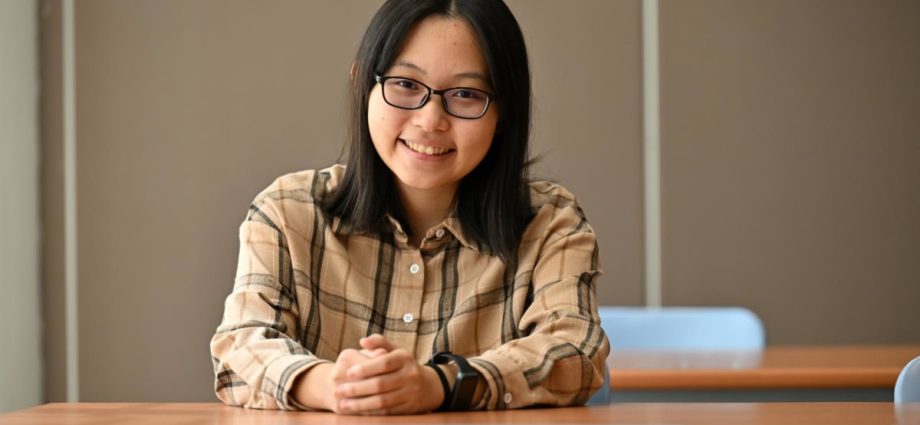
Ms Yek was “more open to trying new things” upon returning to school. No longer could she solely rely on rote memorisation to study, even as she practised the same questions repeatedly.
What helped the most, she realised, was being allowed to record her teachers during lessons. As an auditory learner, she found it helpful to have a recording she could replay anytime.
She was also more honest in her personal interactions, not feeling the pressure to keep up a front anymore.
When the memory lapses first happened, she would “pretend” she recognised a person and hold a whole conversation with them, all without remembering who they were, she recalled in amusement.
“But at the start of J2, I just told the class, ‘Hi, I’m very forgetful. If I don’t recognise you, don’t hold it against me. Just a heads up.’ And I’m glad I did that, because their attitudes didn’t change,” she said.
“During a conversation, if I forgot what I was saying or I didn’t know what they were saying, they would just repeat it for me. I don’t know how many times they did that but I’m very grateful.”
Life was “more liberating” when she didn’t have to hide who she was.
A day before her A-Level results were released, Ms Yek seemed somewhat accepting of whatever fate had in store.
“Whatever happens, happens. I do have plans but if it doesn’t go well, I won’t be disheartened … I mean, okay, maybe I will be a bit,” she said. “But I have to find some other way like how I did in J1.”
The “other way” ended up forming who she is now. “This whole experience helped build my character,” she admitted.
“I was a bit narrow-minded last time, like grades are everything; if I don’t do well, I’m a failure. But throughout this journey, I realised that people around me matter quite a bit more.”
When the 20-year-old received her A-Level results on Friday, she ran to her family with tears of joy and relief. Printed on her result slip, among her “better than expected” grades, was an A for chemistry.

